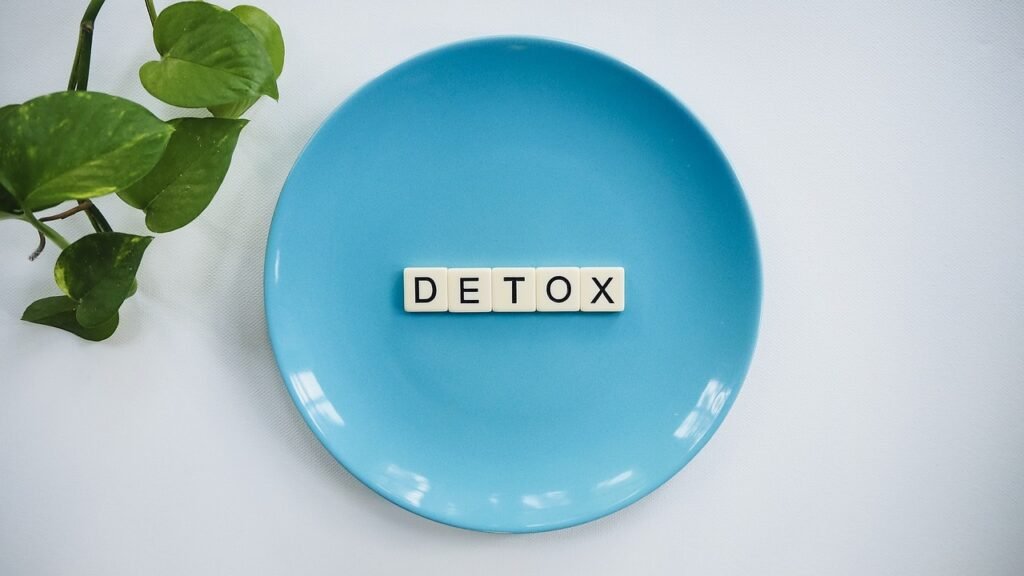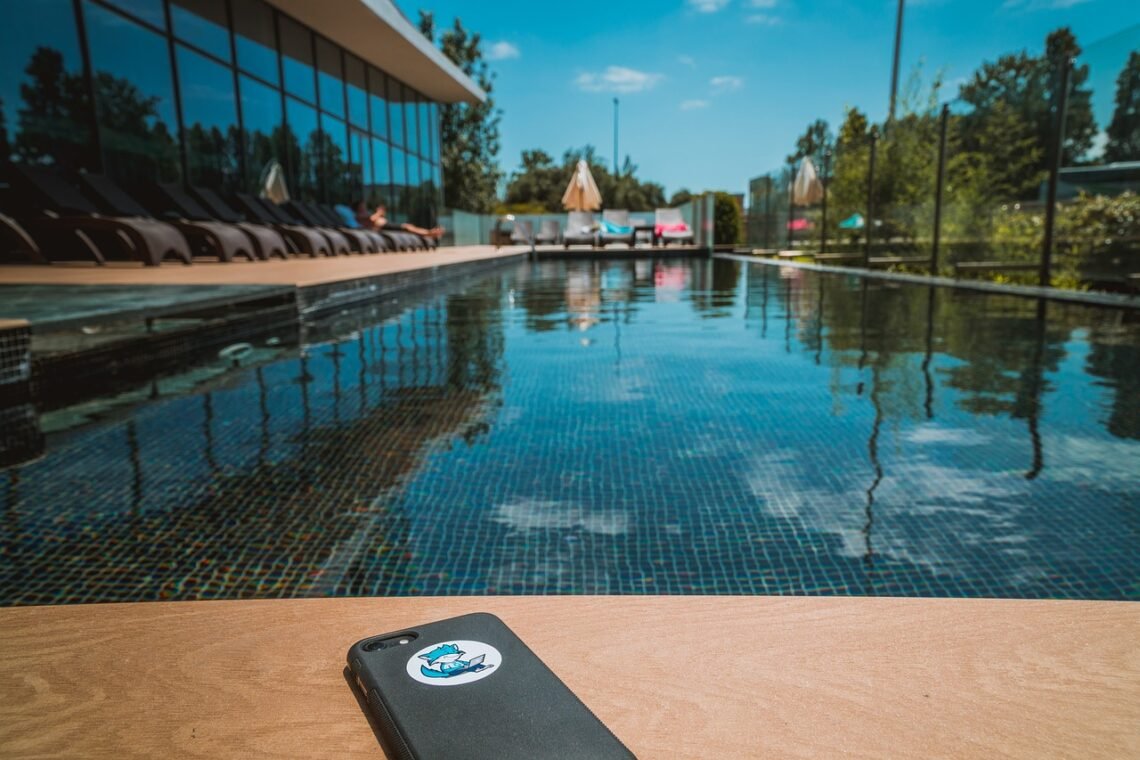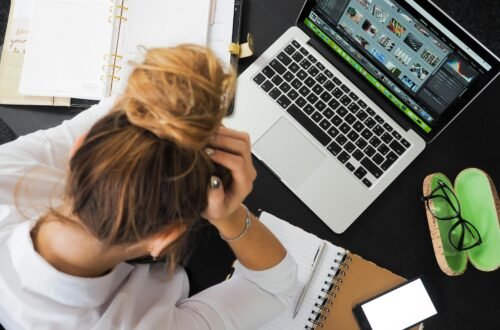Our digital devices have become a big part of who we are. It’s easy to feel overwhelmed and disconnected because of this. The constant pings, alerts, and endless scrolling make us feel anxious, tired, and in need of a break. But what if unplugging was the answer?
Being always connected has taken a toll on our mental health. In Germany, over 33 million people are online many times a day, and 11 million are almost always connected. In the U.S., 18% of adults feel stressed from too much technology use. This leads to feeling down and trouble sleeping. And 61% of people struggle to stop using their devices, showing how common digital dependency is.
Key Takeaways
- Too much screen time can make us stressed, anxious, and disconnected from the real world.
- Mindfulness practices like meditation, deep breathing, and tech-free walks help us feel calm and focused.
- Unplugging from devices can make us sleep better, work more efficiently, and live healthier.
- Activities like drawing can be therapeutic to reduce anxiety and help us grow personally.
- Taking breaks and disconnecting helps us reconnect with ourselves and the world around us.
The Need for a Digital Detox
In today’s world, we’re always looking at screens and using technology. This constant use can lead to problems like short attention spans and more anxiety. The effects of digital overload and tech addiction are clear. We need a digital detox more than ever.
Overwhelming Screen Time and Its Consequences
Research shows that too much screen time and social media dependency harm our mental and physical health. It can make us feel anxious, depressed, and lonely, especially in young people. The blue light from screens can mess up our sleep, causing poor sleep and insomnia.
Always checking notifications can make us less productive and more stressed. It also makes it hard to really connect with others and the world around us. This constant digital stress affects our mental health a lot.
- Using social media too much is linked to feeling anxious, depressed, and lonely. Young adults spending over two hours a day on it are more likely to have poor mental health (Royal Society for Public Health, 2023).
- The blue light from screens can mess up our sleep cycle, leading to bad sleep and insomnia.
- Taking regular breaks and longer detoxes once a month helps keep a good balance between online and real life.
- Setting daily limits on social media apps and using tools to track and limit screen time can lessen the negative effects on mental health.
To address these issues, digital detox retreats and wellness programs are getting popular. They offer a break from constant digital noise. People can disconnect, enjoy nature, and practice mindfulness to improve their well-being.
Unplugging for Mental and Physical Well-Being
In today’s digital world, we need a digital detox more than ever. Technology has made life easier but has also hurt our mental and physical health. Taking a break from screens can bring many mental health benefits and physical health benefits.
Studies show that taking a break from tech has many positive effects. Nature retreats offer a peaceful place that clears our minds. They help us think better, be more creative, and solve problems clearly. Nature’s sounds also calm us down, easing stress from everyday life.
- Being in nature lowers stress, making us feel calm and peaceful.
- Outdoor activities like hiking or yoga increase energy, boost immunity, and support a healthier life.
- Nature retreats help with mental health by relaxing and reducing stress.
A digital detox also benefits us in many ways. It improves sleep, lowers anxiety, and makes us more mindful. Taking a break from screens helps us see ourselves in a positive light. This leads to feeling more satisfied and fulfilled.
Art therapy, like mindful drawing, is also helpful during a digital detox. It helps people feel grounded, less anxious, and supports healing and growth. This is especially true for those facing mental health issues.
Pausing and disconnecting from devices is key to getting back our mental and physical health. By setting boundaries and choosing offline activities, we start a journey of self-discovery. This leads to a life that is calmer, happier, and more rewarding.
Digital Detox, Mindful Living, Digital Wellness, Offline Retreat
In today’s world, we’re all glued to our screens. The average person checks their phone up to 80 times a day, often right after waking up. This constant screen time affects our mental and physical health, causing stress, reduced focus, and a lack of presence.
Taking a digital detox can help us find balance. By unplugging, we can reconnect with ourselves and the world around us. This can lead to a happier, more balanced life.
The Rise of Offline Retreats and Vacations
Offline retreats and vacations are becoming more popular as we seek digital wellness. These experiences take place in peaceful natural settings, offering a break from our digital lives. They usually last 3 to 4 nights, giving us a chance to relax and reconnect.
The Mindful Unplug Experience at Feathered Pipe Ranch in Montana is one such retreat. It welcomes everyone and offers mindfulness practices, yoga, and outdoor activities. Past guests love the beautiful setting, skilled instructors, and the ease of disconnecting.
The “NOT a Digital Detox” retreat at Othona Community in Dorset, UK, is another great option. It’s a weekend getaway focused on mindfulness, creativity, and community. It costs £140 for two nights with meals included.
These retreats remind us of the importance of stepping away from our devices. Being in nature can lower our heart rate, blood pressure, and stress levels. It also improves our focus and overall well-being.
As more people seek digital wellness, we’ll see more offline experiences. These retreats offer a chance to take back our time, attention, and connection with the world.
| Retreat | Location | Duration | Highlights |
|---|---|---|---|
| The Mindful Unplug Experience | Feathered Pipe Ranch, Montana | 3-4 nights | – Serene natural setting – Mindfulness practices and yoga – High guest satisfaction ratings |
| “NOT a Digital Detox” | Othona Community, Dorset, UK | 2 nights | – Focus on mindfulness, creativity, and community – Affordable cost of £140 with full board – Bursaries available for attendees |

The Power of Mindful Drawing
In today’s fast-paced world, mindful drawing is a great way to escape from technology. It helps people relax and find peace. Drawing lets us take a break from the stress of everyday life.
Drawing as a Therapeutic Practice
Emily Haworth-Booth says mindful drawing helped her feel less anxious and breathe more slowly. It helped her heal. Many artists agree that drawing changes how we see the world and connects us to our senses.
It also helps us escape the constant digital noise. Charlie Mackesy used drawing to deal with his grief and trauma. Through art therapy, he found a way to explore his feelings and grow.
Drawing has many benefits. It’s the smooth movement of the pencil, the focus needed to capture details, and the joy of creating something. Mindful drawing brings a unique and fulfilling experience that improves our well-being.
As we deal with the changing digital world, we should value creative expression. Adding mindful drawing to our lives can bring many benefits. It leads to a calmer, more centered life.
Embracing the Power of Pause
In today’s fast-paced world, it’s easy to always be connected and productive. But, taking regular digital breaks can greatly improve our mental and physical health.
The Global Day of Unplugging happens every year on the first Friday in March. It encourages people to put down their devices and enjoy a break. This idea started from the Jewish Sabbath tradition of not using technology at the end of the week.
By joining this day, people and businesses can feel less stressed, sleep better, be more creative, and connect deeper with others. Small businesses can help by setting digital detox rules, hosting wellness events, and encouraging team members to talk face-to-face.
One way to practice digital detox is to set limits on device use. This means using apps to track how much time you spend on screens, making tech-free areas at home, and not using devices before bed. These mindful living techniques help us take back control over our digital habits. They lead to better focus, sleep, and stronger relationships.
The author tried a 60+ hour digital pause. They didn’t use any devices from Friday 6 pm to Monday 8 am. This time was spent with family, meditating, reading, journaling, and cooking. These activities helped with deep work, thinking, and getting back our mental and physical health.
Taking breaks from the digital world can change our lives. By stepping away and focusing on the physical, we become more present. This leads to more creativity and stronger bonds with ourselves and others.
Whether it’s the Global Day of Unplugging or personal digital detox strategies, the benefits are clear. By making these practices a priority, we can take back our time, focus, and well-being. This leads to a more satisfying and connected life.
The Bottom Line
In today’s fast-paced world, the need for digital detox and mindful living is more important than ever. Our constant use of screens affects our mental and physical health. It leads to problems like poor focus, sleep issues, and higher risks of depression and anxiety.
But, taking a break from technology can help us feel more present and connected. Activities like mindful drawing and spending time in nature show us their benefits. By taking regular breaks from tech and doing mindful things, we can feel calmer, be more creative, and live a better life.
The Laurentians region in Quebec offers great places for people to take a break from screens. Social media stars and others can enjoy spa treatments, forest-bathing, or just the quiet beauty of nature. These breaks can really improve our well-being.
Source Links
- Digital Detox: The Ultimate Guide To Beating Technology Addiction, Cultivating Mindfulness, and Enjoying More Creativity, Inspiration, And Balance
- The Digital Fast: 40 Days to Detox Your Mind and Reclaim What Matters Most
- Digital Minimalism: Choosing a Focused Life in a Noisy World
- Life Unplugged: A Digital Detox Workbook





